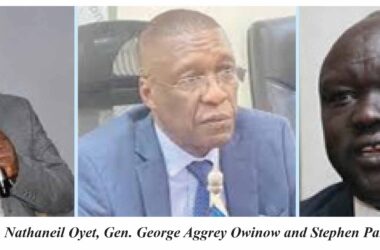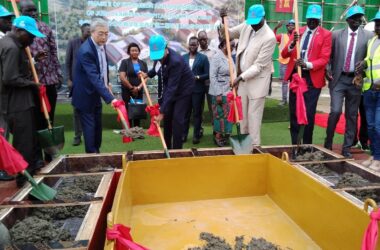By Makuac Kuot Bol
Although some poor people, as of a given time, do not remain there permanently, some poor people actually remain poor all through their lives.
The reason for such perpetual poverty is seldom mentioned, much less investigated. It is thus the task of this piece to look at the reasons for poverty in perpetuity.
Pro tip: Whoever or whatever causes people to remain stagnantly poor is starkly contrasted to whoever or whatever causes others to move from being poor to the middle class or even ultra-rich.
This phenomenon is known as the “poverty trap,” which is a mechanism that makes it very difficult for people to escape poverty.
A poverty trap, as the definition goes, is created when the economic system of a country requires a significant amount of capital in order to earn enough to escape poverty. Since poor people lack this capital, they also find it difficult to acquire it, creating a self-reinforcing cycle of poverty.
For example, loans are rarely made to poor people, but loans are given to those they call businesspeople in South Sudan. Businesspeople that cannot participate internationally and bring in new things for their people Because the poor always have “life-threatening emergencies” to meet a deadline to beat.
As an aside, the word deadline comes from the American Civil War, when prison camps set boundaries and any prisoner who crossed a line was shot.
So, exceeding a few lines of life necessities may mean life or death for the poor person. Hence, the sums of money lent are usually millions of dollars, lent for a month, with a high interest in using money for individuality.
Basically, the poor person becomes an economic slave to the lender all through life.
Another underlying reason why the poor remain poor is their environment, or simply, their low-income neighborhoods are littered with higher rates of crime, violence, squalor, meagre wages, long hours of unproductive work, poor school attendance, and a poorer graduation rate.
For this reason, the poor are prone to drug use, sexual abuse, and any other demeaning conditions that can limit their basic survival.
And the irony, as Thomas Sowell would say, is that “any number of ways in which poor people adjust to their poverty are shocking to people who have more money and more options—as well as more presumptions.”
So, when the rich presume to help the poor, they give limited options that can hardly be considered to be making the poor better off.
As beautiful as championing animal rights is, what exceeding benefit is it for an international wildlife organization to send money every month to help animals in a poor community lead a better life when the poor people of the community are dying of hunger?
And our government is relieving and appointing as entertainment for us without improving one of the country’s pillars of need. What use is paying taxes to the government if the government has less weight with its people?
Anyway, my point in this piece is that the poor who remained poor may share the blame for their poverty, but most of what passes for aid or empowerment towards these people is more or less disempowerment.
Some of the huge amounts expended are far removed from the daily lives of the people they’re supposed to help.
One key solution is to make the poor people participate in the decision-making of the kind of help suitably addressed to their needs and the country’s decision-making.
People experiencing poverty inherently know best how to help themselves; they just need proper guidance.
As a rich person or international organization, addressing wants that fuel your ego and make you assured of your own public image, wisdom, and virtue without reducing poor people’s needs is just a waste of resources.
As someone once pointed out, a fool can put on his coat better than a wise man can put it on for him.
I am a remnant of “life-threatening emergencies in South Sudan.”
The writer cab be reached via Tel: 0923323572; Email: makuacmark12@gmail.com.



